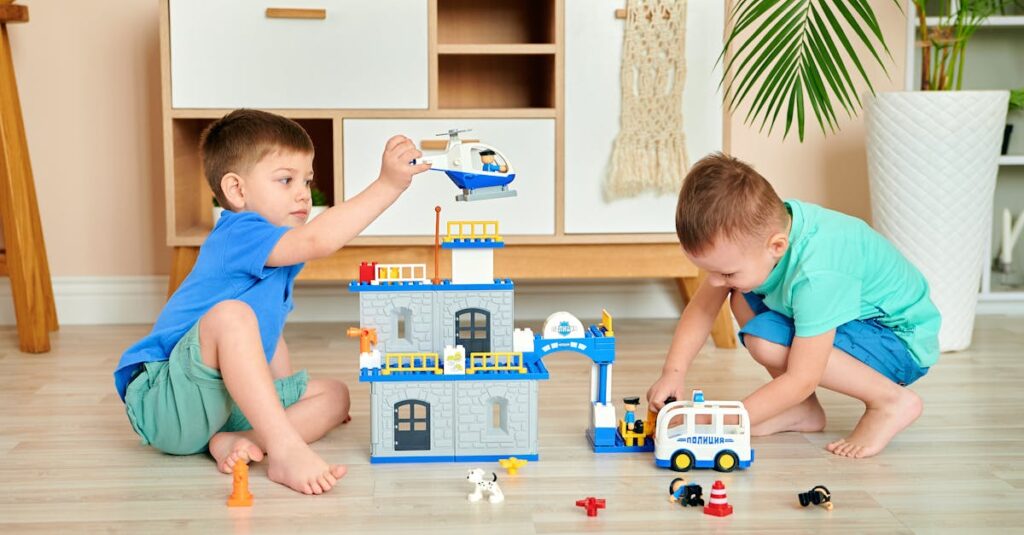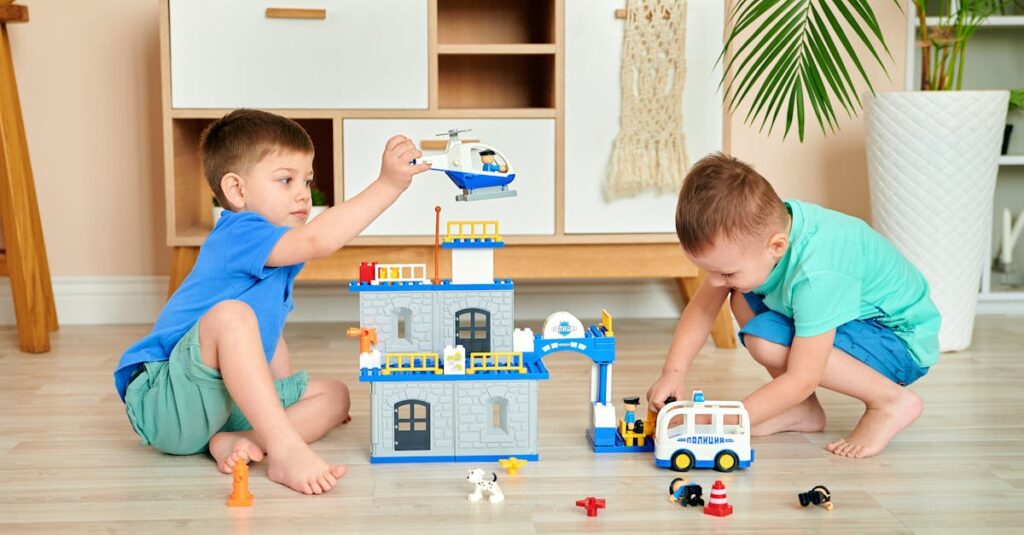In today’s world, parenting comes with its own set of challenges, and some parents seem to take it to a whole new level. Enter the helicopter parent: hovering, overprotective, and armed with a checklist that would make a military commander proud. While their intentions are often rooted in love, these parents might be unintentionally launching their kids into a whirlwind of anxiety.
Table of Contents
ToggleUnderstanding Helicopter Parents
Helicopter parents are those who closely supervise and manage their children’s lives. These parents often act with the best intentions, but their overprotectiveness can lead to unintended consequences.
Definition and Characteristics
Helicopter parents exhibit specific behaviors such as constant monitoring of children’s activities and decisions. They frequently intervene in their children’s schoolwork and social interactions, which may hinder the child’s autonomy. These parents often struggle to let go, believing they must shield their children from all risks. Communication patterns typically involve excessive guidance, where advice is given without allowing children to explore solutions independently. Characteristics include a strong focus on academic performance and a tendency to prioritize their children’s happiness above all else.
Impact on Parenting Styles
Helicopter parenting significantly influences overall parenting styles. This approach fosters anxiety in children, who may feel overwhelmed by their parents’ expectations. Shifts in authoritative parenting often occur, as helicopter parents may reduce opportunities for children to learn from failures. Consequently, children may develop lower self-esteem and diminished problem-solving skills. Studies indicate that children raised by helicopter parents often exhibit higher levels of anxiety when faced with challenges. Ultimately, this parenting style can create dependency, as children rely heavily on parental support rather than developing their own decision-making capabilities.
The Concept of Anxiety in Children
Children experience anxiety as a normal response to stress. However, excessive anxiety can lead to disorders that significantly impact their emotional and psychological development.
Types of Anxiety Disorders
Generalized anxiety disorder, social anxiety disorder, and separation anxiety disorder represent common types of anxiety disorders in children. Generalized anxiety disorder manifests as persistent worries about various aspects of life, such as academics and friendships. Social anxiety disorder involves intense fear of social situations, making interactions difficult. Separation anxiety disorder occurs when children struggle to be apart from parents or caregivers, often leading to excessive distress during separations.
Signs and Symptoms in Children
Recognizing signs of anxiety in children helps identify issues early. Frequent complaints of stomachaches or headaches may indicate anxiety. Changes in behavior, such as increased irritability or withdrawal from activities, also signify distress. Additionally, difficulties in concentrating and recurring nightmares can emerge. Some children display avoidance behaviors, steering clear of situations that induce anxiety. Understanding these symptoms fosters timely intervention and support from adults.
The Connection Between Helicopter Parents and Anxiety
Helicopter parenting often increases anxiety levels in children. This occurs due to excessive supervision and control that limits children’s ability to face challenges independently.
How Overprotection Contributes to Anxiety
Overprotective behaviors can create a heightened sense of fear in children. They may become overly reliant on parental guidance for decision-making. Constant intervention prevents kids from developing coping mechanisms, leading to feelings of insecurity. These children often experience stress when faced with new challenges as they lack the confidence necessary to tackle obstacles on their own. Consequently, anxiety manifests as physical symptoms like headaches and stomachaches, as well as behavioral changes such as withdrawal from social situations.
The Role of Independence in Child Development
Independence plays a vital role in healthy child development. Children need opportunities to explore, make mistakes, and learn from these experiences. When parents step back, kids cultivate problem-solving skills essential for their emotional well-being. Through autonomy, they build self-esteem and resilience, which mitigate anxiety. Encouraging self-reliance helps children gain confidence in their abilities. As a result, they become more adept at handling life’s challenges while feeling less overwhelmed by expectations.
Strategies for Parents to Foster Independence
Fostering independence in children is crucial for their development. Parents can implement specific strategies to help children make their own choices and embrace challenges.
Encouraging Decision-Making
One effective method involves allowing children to make age-appropriate decisions. Parents can start with simple options, like choosing their snacks or selecting weekend activities. As children grow, they can take on more significant decisions, such as picking classes or managing allowances. Encouragement goes a long way; complimenting children’s choices reinforces their confidence. Parents might facilitate discussions around consequences, guiding them in understanding the outcomes of their decisions. This approach builds autonomy and helps children learn to evaluate situations critically.
Importance of Risk-Taking
Risk-taking plays a vital role in developing resilience and self-esteem. Parents should create an environment where children feel safe to explore their limits. Encouragement to take calculated risks, like trying new sports or engaging in social activities, can build confidence. Parents might share their own experiences with risk and highlight positive outcomes. Allowing children to experience minor failures teaches valuable lessons about persistence and problem-solving. Emphasizing the growth found in overcoming challenges equips children with crucial life skills.
Helicopter parenting may stem from a desire to protect children but can lead to unintended consequences. The overprotective nature of these parents often stifles a child’s ability to develop independence and resilience. As children face fewer challenges on their own, they may struggle with anxiety and self-esteem issues.
Encouraging autonomy through decision-making and allowing calculated risks fosters a healthier emotional landscape. By stepping back and letting children navigate their own experiences, parents can help them build essential life skills. This shift not only reduces anxiety but also empowers children to face future challenges with confidence.













